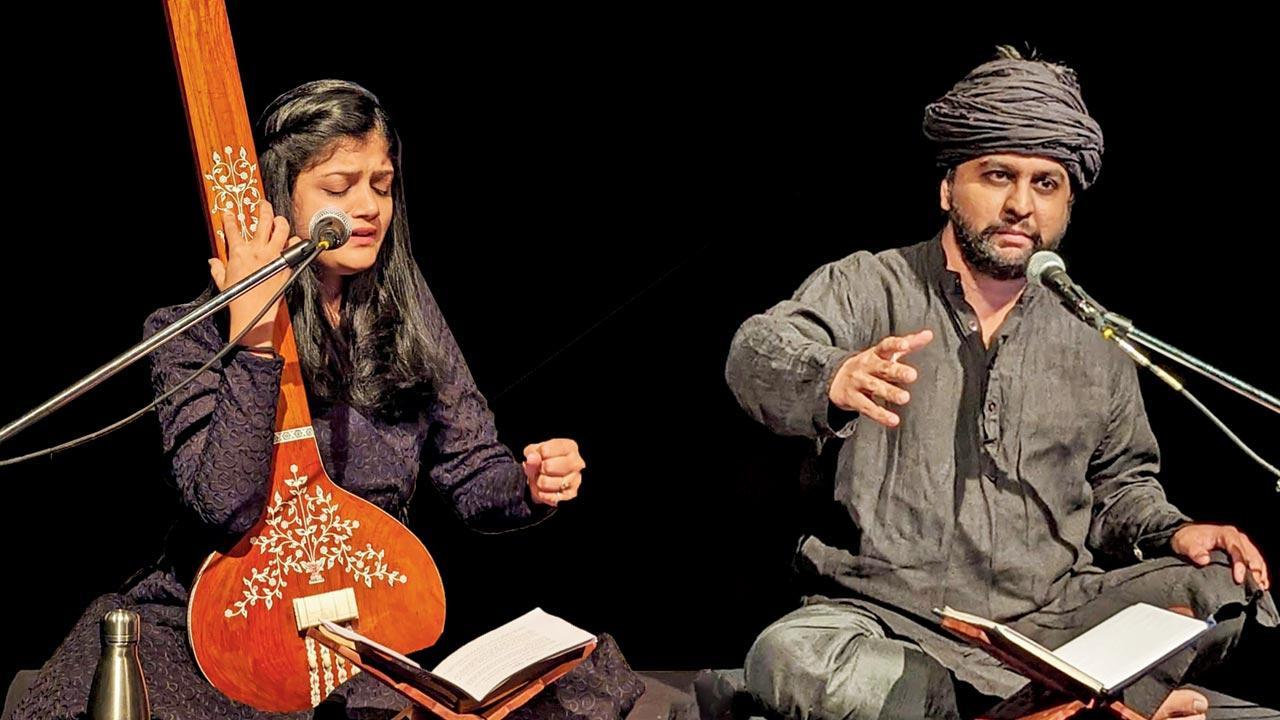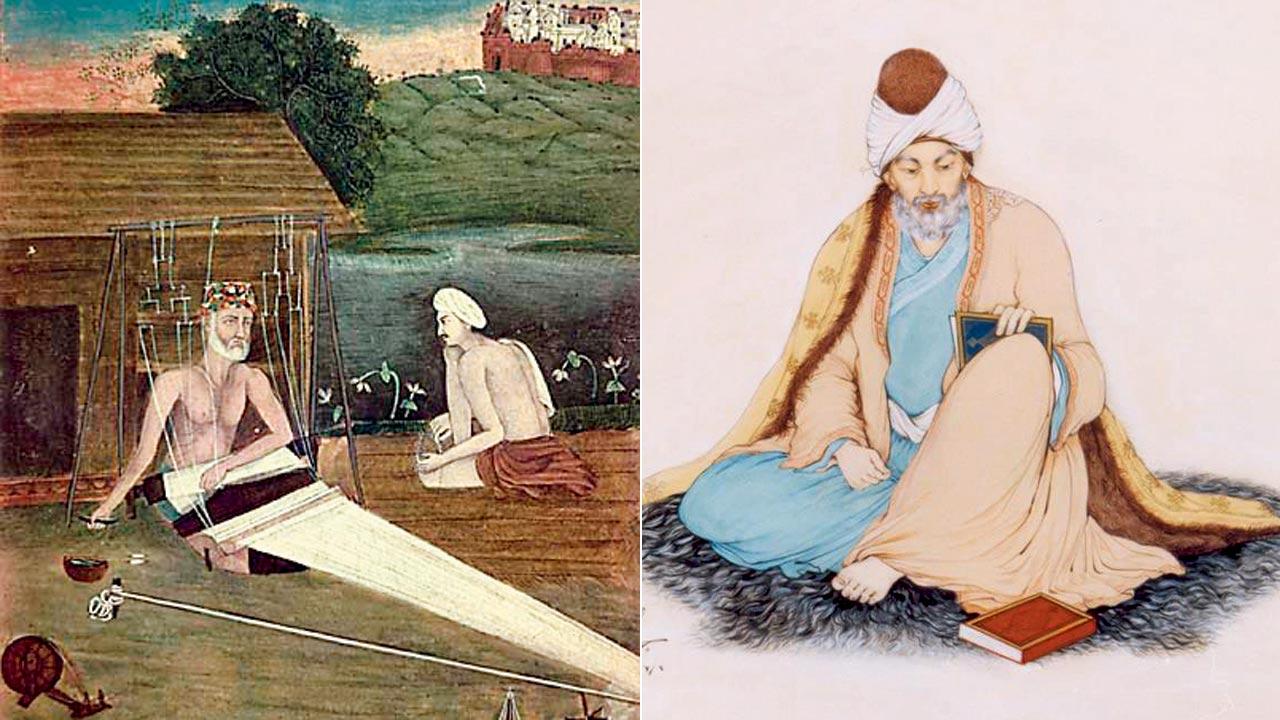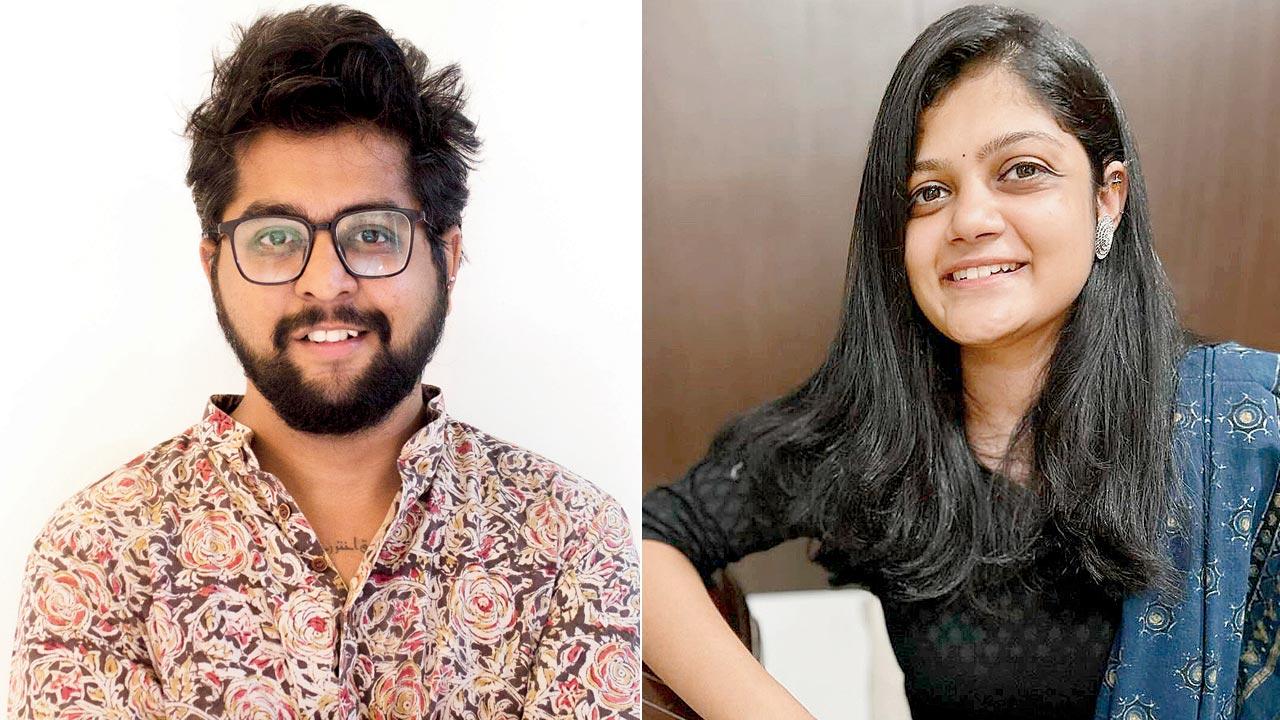A performance of verses by the two great poets will aim to shed light on their converging ideas and ideologies

(From left) Sawani Shikhare and Ashwin Chitale at a previous performance
Writer and actor Ashwin Chitale believes that bridges are the need of the hour in today’s world of increasing divisions. They existed in the writings of saints and poets from centuries ago, and are waiting to be discovered by those who choose to look deeper. “Humans have always been divisive by nature. Fortunately, there have always been a few that have strived to bridge the gap,” he shares. Rumi Meets Kabir, Chitale’s new production gives us a closer look of the converging ideas and thoughts of the two mystics separated by the Bhakti and Sufi movements, geographies, influences and most importantly time, through poetry, ghazals and bhajans.
ADVERTISEMENT
Chitale traces his journey back to translating Rumi’s Persian verses to Urdu for his own understanding six years ago. After translating more than 1,008 verses, the artiste shares that his studies revealed how the 13th century mystic is often misunderstood, largely because people lack the context that his verses were written in. “With the West turning to Eastern philosophy recently, I noticed how Rumi was being increasingly misquoted and misunderstood. You cannot understand Rumi without understanding his life,” he shares. To that end, Chitale has been presenting his self-written solo show Rumi Hai, a detailed exploration of his findings since 2021.
 A painting of Kabir weaving (1825); (right) Rumi, by Iranian artist Hossein Behzad (1957). Pics Courtesy/Wikimedia Commons
A painting of Kabir weaving (1825); (right) Rumi, by Iranian artist Hossein Behzad (1957). Pics Courtesy/Wikimedia Commons
More than 80 shows of Rumi Hai around the country later, as the writer brings Kabir into his repertory with Rumi Meets Kabir, he reveals the realisation that sparked the idea. “I noticed that people understand Kabir. His verses seem familiar because a lot of us grew up studying his verses and ideologies. But in essence, both Kabir and Rumi use the same euphemisms and metaphors to explain life,” he remarks, further sharing an example — In the couplet Paani mein meen pyasi, Kabir speaks of a fish that is parched, although surrounded by water in the sea. The usage of similar metaphors of the sea and fish to represent humans and their pursuit of love make an appearance in Rumi’s Persian poems.
During the 90-minute performance, Chitale will be joined by vocalist Sawani Shikhare in bringing to life four stories by Kabir and three by Rumi, carefully dissecting them to find overlapping themes. Over a phone call, Shikhare, a trained Hindustani classical vocalist, shares snippets of her renditions of Kabir’s verses. As she concludes a self-composed qawwali set to the well-known verse Moko kahan dhunde, she notes, “The biggest challenge is singing these verses without any accompaniments. The performance is stripped-down and raw in the sense that it is just me and the tanpura on the stage.” As for understanding the intertwining theme of the performance, the 24-year-old notes, “That is a journey with no definite end. The better you understand their writings, the more you realise how much of it you still don’t.”
 Ashwin Chitale and Sawani Shikhare
Ashwin Chitale and Sawani Shikhare
We leave the artistes with a question. Does the world around us, where divisions are slowly becoming the norm, even seeping into performing arts circles lately, lend the performance some added relevance? “Humans have always been divisive by nature,” Chitale smiles. “The existence of themes of unity and harmony in these writings separated by centuries reflects the enduring nature of man’s divisive tendencies. The relevance, in that sense, has always been there, and might be here to stay,” he concludes.
On April 7; 7 pm
At Veda Black Box, Bungalow 120, Aram Nagar Part 2, Versova.
Log on to allevents.in
Entry Rs 400 onwards
 Subscribe today by clicking the link and stay updated with the latest news!" Click here!
Subscribe today by clicking the link and stay updated with the latest news!" Click here!







